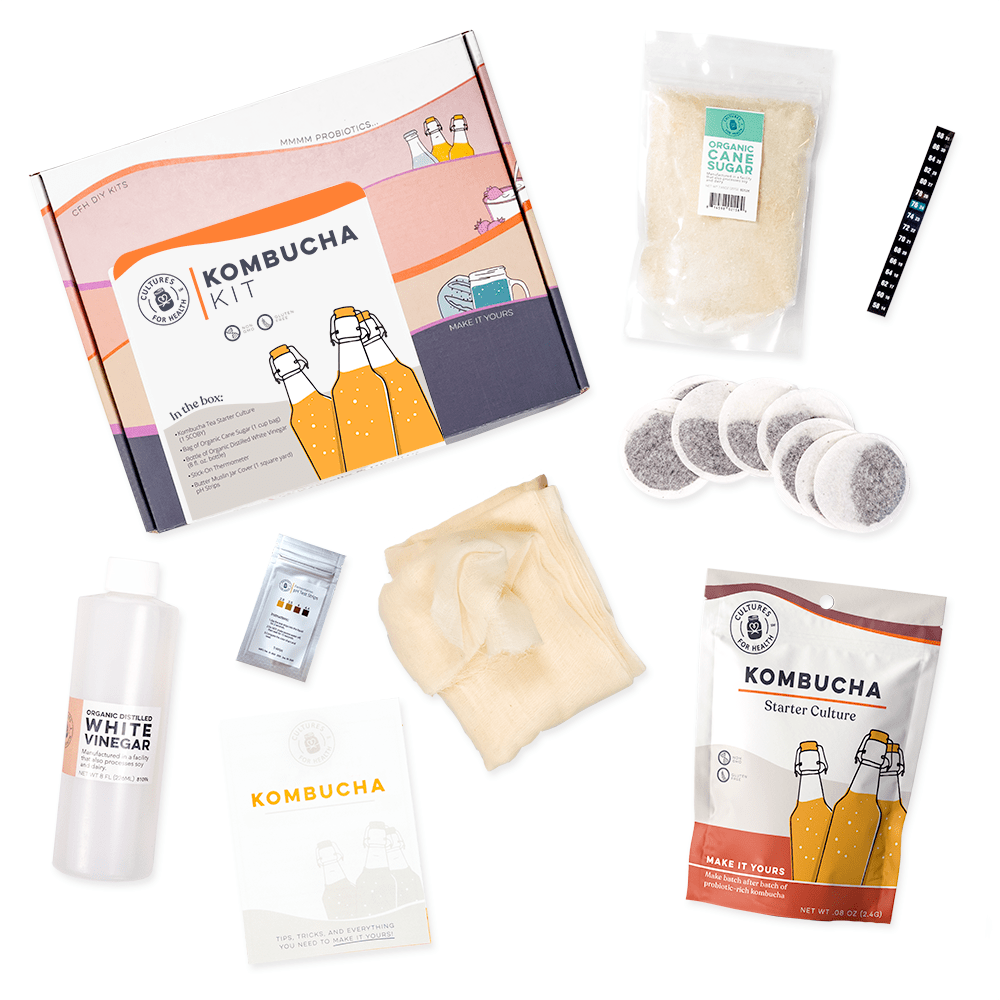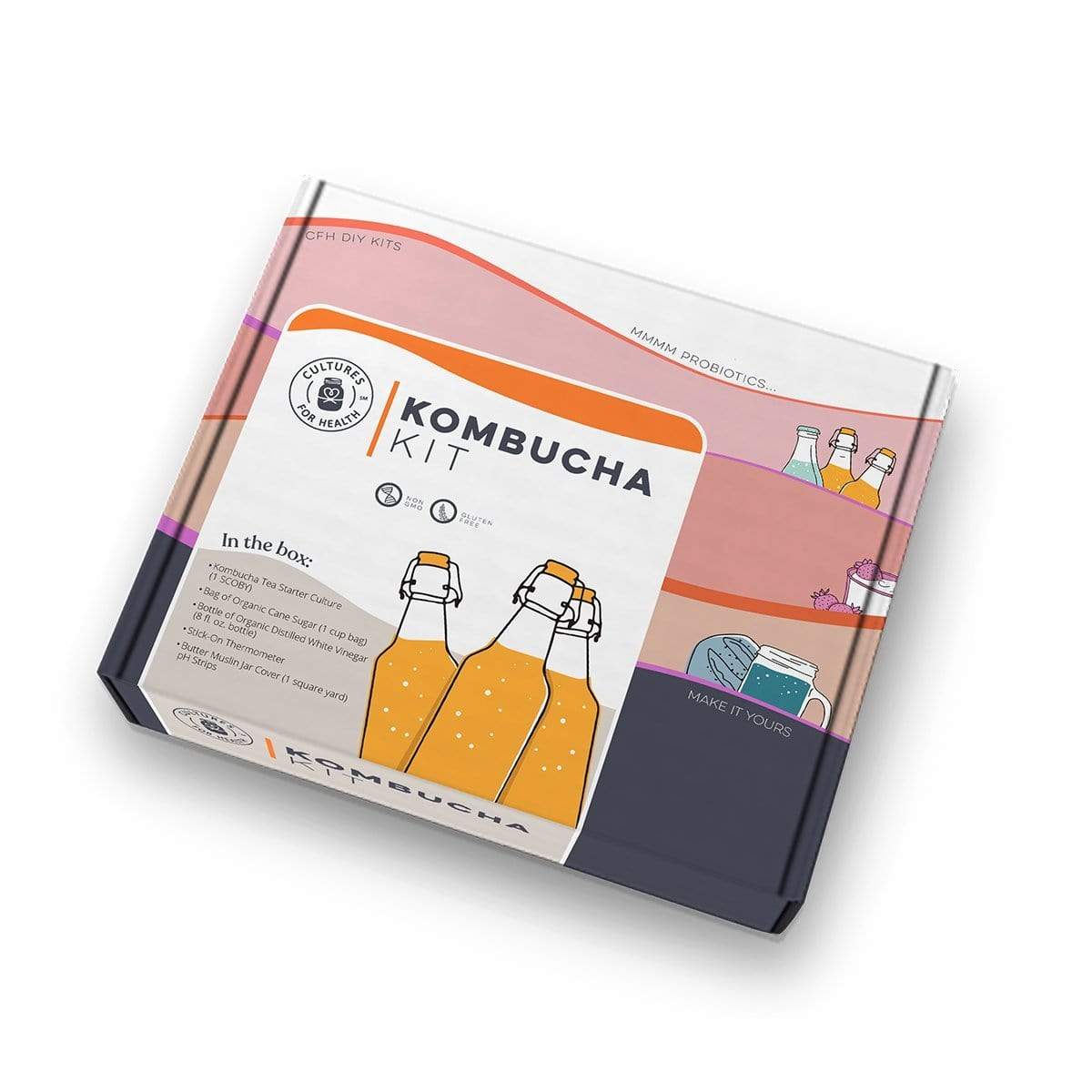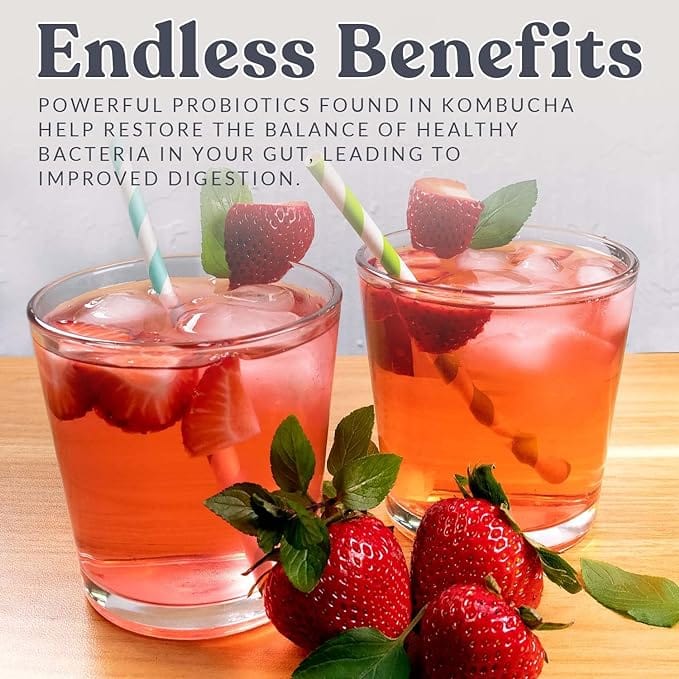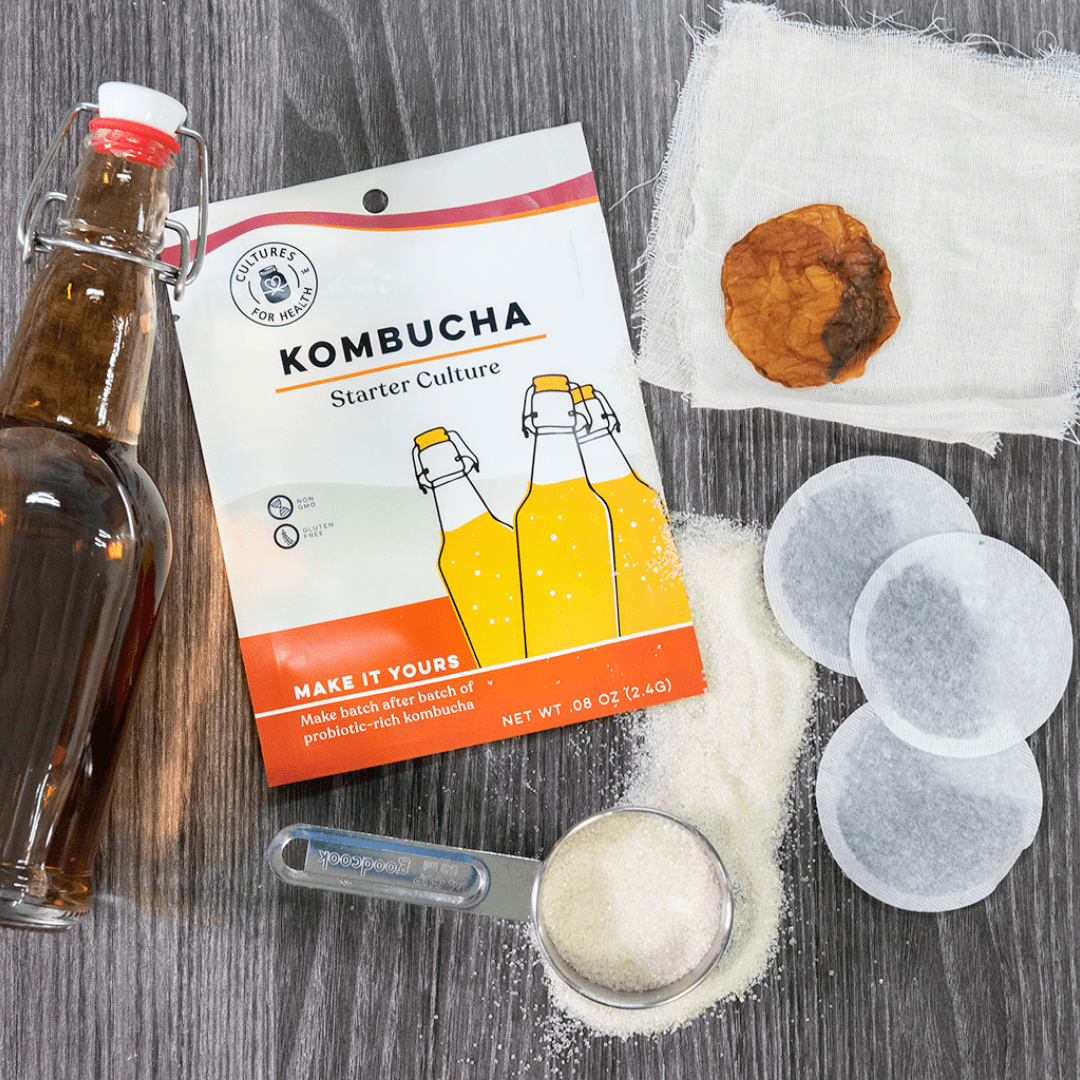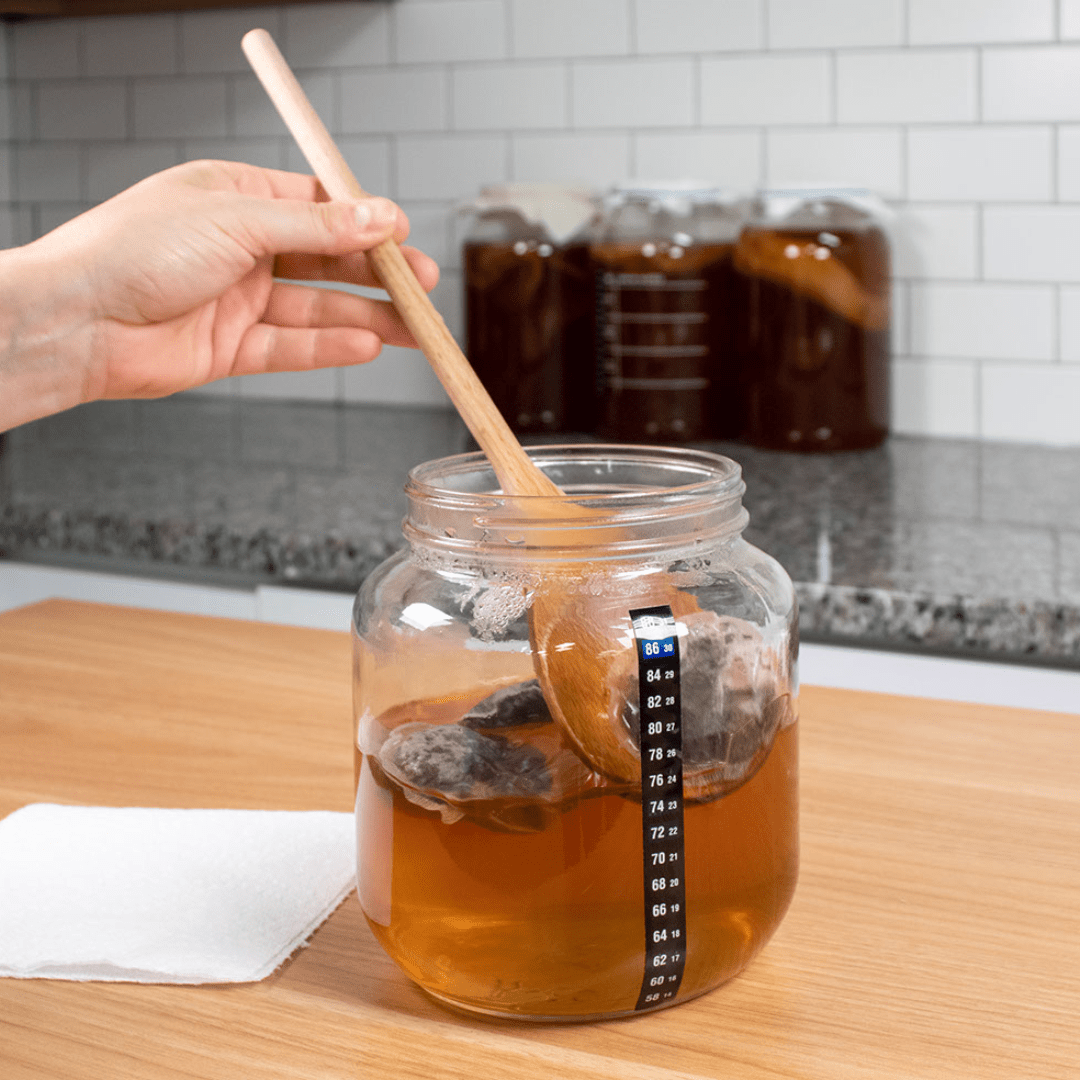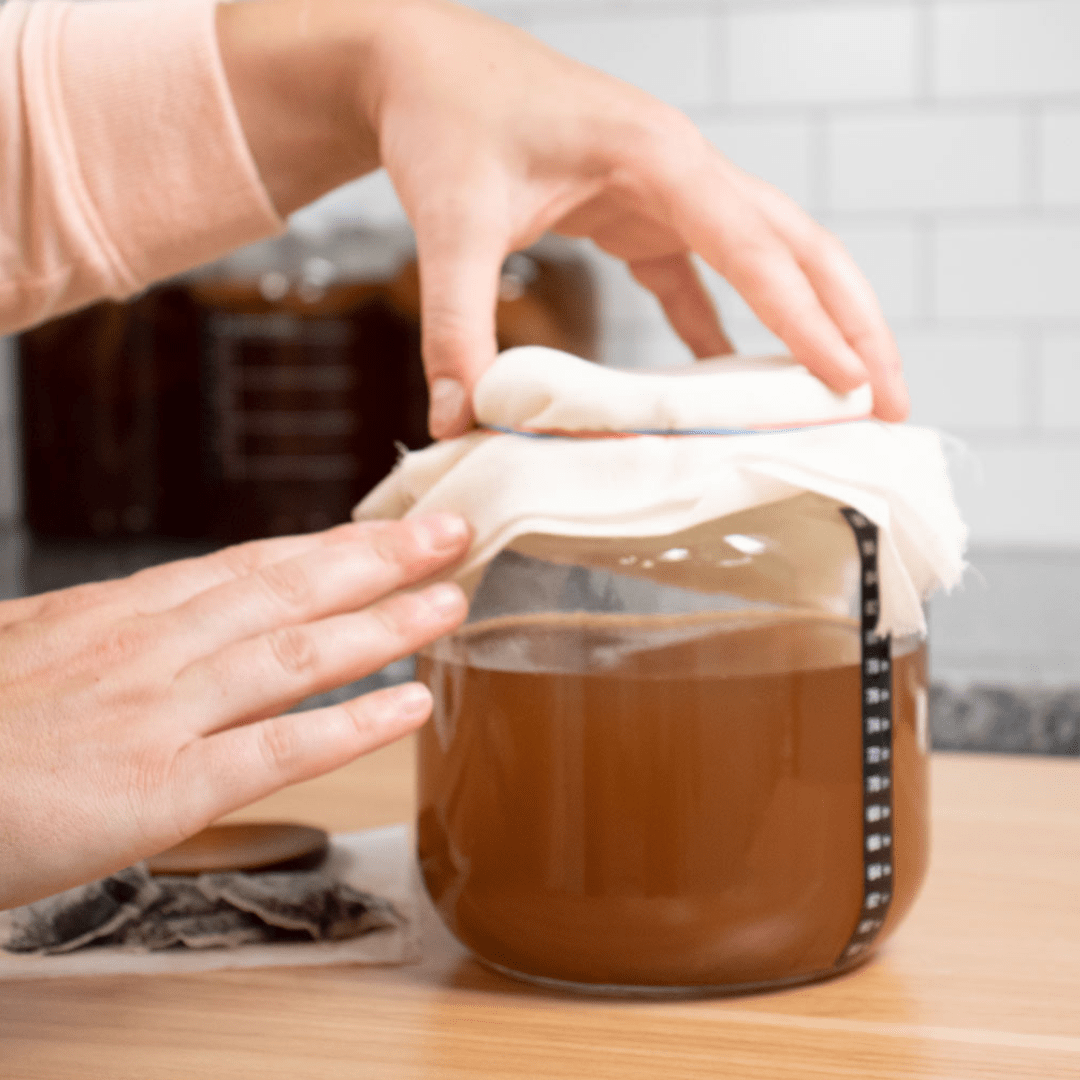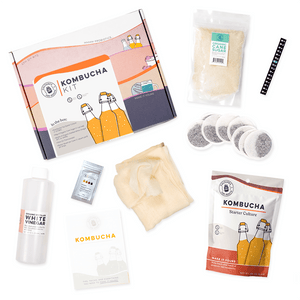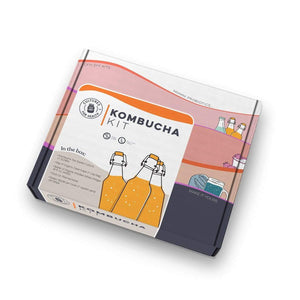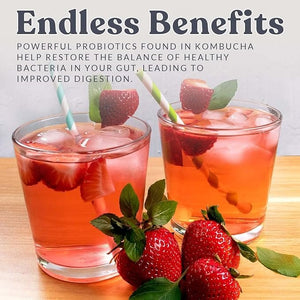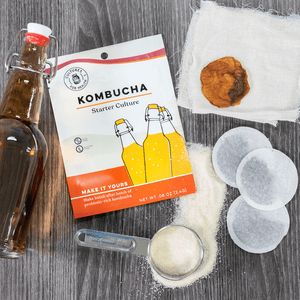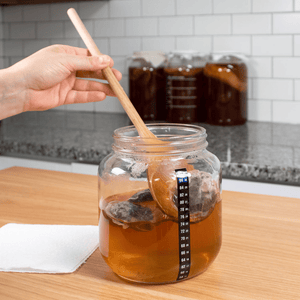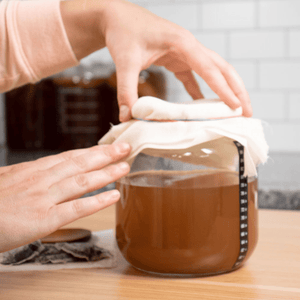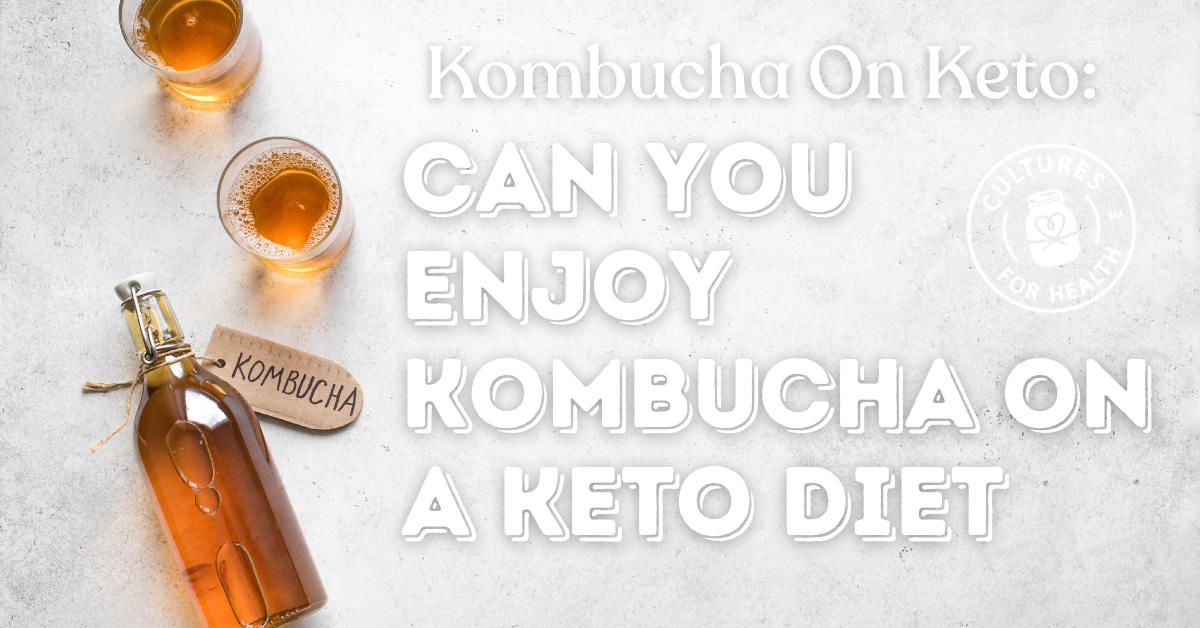
Honey has been eaten by man for thousands of years. It is one of the most sustainable, most delicious, and most healthy sweeteners available to us. It can be used as a food preservative and keeps for a very long time.
In the presence of heat and moisture, however, it can ferment.
Raw honey has not been heated or treated in any way. This means that the naturally occurring enzymes and beneficial properties of the honey are left completely intact. The pollen in raw honey has been known to be beneficial to those suffering from allergies and the enzymes can help digest the foods you consume with the honey.
The fermentation of honey increases those benefits.
In order for honey to ferment, it needs a moisture content of at least 19%. Most honey contains less moisture than this and as such will need water in order to ferment.
Not only is homemade fermented honey delicious, but it's also packed with probiotics and enzymes that are beneficial for gut health. Download our Lacto-Fermentation Guide today and start making your fermented honey!
MEAD
Because of the high sugar content of honey, it is easily fermented into an alcoholic, honey-wine beverage known as mead.
Mead, in its most simple form, is made from honey and water. Like grape wine, mead can be made dry or sweet, depending on the amount of honey used. When making five gallons of mead at a time, dry mead would contain 9 to 12 pounds of honey whereas sweet mead would contain more like 16 to 22 pounds of honey, with the remainder of the volume consisting of water.
LACTO-FERMENTED HONEY
You can also ferment honey into a lactic acid bacteria-containing beverage or condiment. This can be done in a number of ways. For example, you can use honey as the sweetener in kombucha.
Kombucha Starter Kit
WON’T RAW HONEY KILL THE BENEFICIAL ORGANISMS?
Many people argue that you cannot use raw honey in the fermentation process because raw honey is known to have anti-bacterial agents. Their concern is that it would kill the mother culture such as kombucha.
Honey is anti-microbial in nature, but it kills microbes primarily by suffocation, so mixed with water, its antimicrobial properties are somewhat diminished and it becomes a happy home and food source for airborne yeasts and organisms to feast on and produce a traditional fermented product.
So, find yourself a source for high-quality local raw honey and enjoy your fermentation experiments.
Want to start making fermenting honey? Download our Lacto-Fermentation guide and recipe book today!














